Background
FOWLES, John was born on March 31, 1926 in Essex. Son of Robert.1. Fowles and Gladys M. Richards.

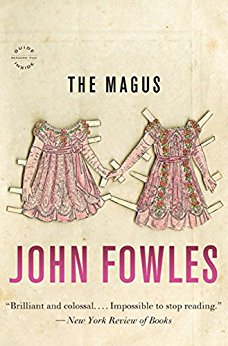
( The novel widely considered John Fowles's masterpiece: ...)
The novel widely considered John Fowles's masterpiece: "A dynamo of suspense and horror....A dizzying, electrifying chase through the labyrinth of the soul....Read it in one sitting if possible-but read it" (New York Times). The Magus is the story of Nicholas Urfe, a young Englishman who accepts a teaching assignment on a remote Greek island. There his friendship with a local millionaire evolves into a deadly game, one in which reality and fantasy are deliberately manipulated, and Nicholas must fight for his sanity and his very survival.
http://www.amazon.com/gp/product/B0081BTOJS/?tag=2022091-20
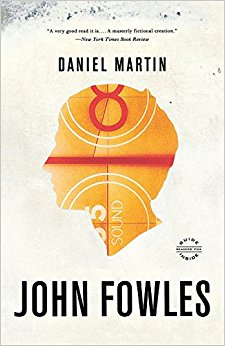
(A new trade paperback edition of "a masterpiece of symbol...)
A new trade paperback edition of "a masterpiece of symbolically charged realism....Fowles is the only writer in English who has the power, range, knowledge, and wisdom of a Tolstoy or James" (John Gardner, Saturday Review). The eponymous hero of John Fowles's largest and richest novel is an English playwright turned Hollywood screenwriter who has begun to question his own values. Summoned home to England to visit an ailing friend, Daniel Martin finds himself back in the company of people who once knew him well, forced to confront his buried past, and propelled toward a journey of self-discovery through which he ultimately creates for himself a more satisfying existence. A brilliantly imagined novel infused with a profound understanding of human nature, Daniel Martin is John Fowles at the height of his literary powers. A new trade paperback edition of "a masterpiece of symbolically charged realism....Fowles is the only writer in English who has the power, range, knowledge, and wisdom of a Tolstoy or James" (John Gardner, Saturday Review). The eponymous hero of John Fowles's largest and richest novel is an English playwright turned Hollywood screenwriter who has begun to question his own values. Summoned home to England to visit an ailing friend, Daniel Martin finds himself back in the company of people who once knew him well, forced to confront his buried past, and propelled toward a journey of self-discovery through which he ultimately creates for himself a more satisfying existence. A brilliantly imagined novel infused with a profound understanding of human nature, Daniel Martin is John Fowles at the height of his literary powers.
http://www.amazon.com/gp/product/0316290394/?tag=2022091-20
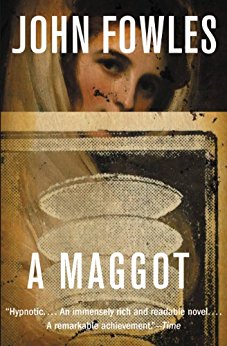
(In the spring of 1736 four men and one woman, all traveli...)
In the spring of 1736 four men and one woman, all traveling under assumed names, are crossing the Devonshire countryside en route to a mysterious rendezvous. Before their journey ends, one of them will be hanged, one will vanish, and the others will face a murder trial. Out of the truths and lies that envelop these events, John Fowles has created a novel that is at once a tale of erotic obsession, an exploration of the conflict between reason and superstition, an astonishing act of literary legerdemain, and the story of the birth of a new faith.
http://www.amazon.com/gp/product/B00AWBU39U/?tag=2022091-20
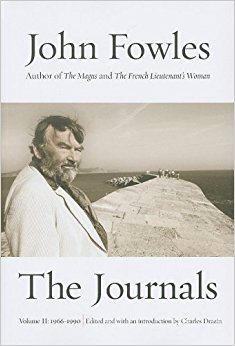
(John Fowles gained international recognition in 1963 with...)
John Fowles gained international recognition in 1963 with his first published novel, The Collector, but his labor on what may be his greatest literary undertaking, his journals, commenced over a decade earlier. Fowles, whose works include The Maggot, The French Lieutenant's Woman, and The Ebony Tower, is among the most inventive and influential English novelists of the twentieth century. The first volume begins in 1949 with Fowles' final year at Oxford. It reveals his intellectual maturation, chronicling his experiences as a university lecturer in France and as a schoolteacher on the Greek island of Spetsai. Simultaneously candid and eloquent, Fowles' journals also expose the deep connection between his personal and scholarly lives as Fowles struggled to win literary acclaim. From his affair with Elizabeth, the married woman who would become his first wife, to his passion for film, ornithology, travel, and book collecting, the journals present a portrait of a man eager to experience life. The second and final volume opens in 1966, as Fowles, already an international success, navigates his newfound fame and wealth. With absolute honesty, his journals map his inner turmoil over his growing celebrity and his hesitance to take on the role of a public figure. Fowles recounts his move from London to a secluded house on England's Dorset coast, where discontented with society's voracious materialism he led an increasingly isolated life. Great works in their own right, Fowles' journals elucidate the private thoughts that gave rise to some of the greatest writing of our time. John Fowles gained international recognition in 1963 with his first published novel, The Collector, but his labor on what may be his greatest literary undertaking, his journals, commenced over a decade earlier. Fowles, whose works include The Maggot, The French Lieutenant's Woman, and The Ebony Tower, is among the most inventive and influential English novelists of the twentieth century. The first volume begins in 1949 with Fowles' final year at Oxford. It reveals his intellectual maturation, chronicling his experiences as a university lecturer in France and as a schoolteacher on the Greek island of Spetsai. Simultaneously candid and eloquent, Fowles' journals also expose the deep connection between his personal and scholarly lives as Fowles struggled to win literary acclaim. From his affair with Elizabeth, the married woman who would become his first wife, to his passion for film, ornithology, travel, and book collecting, the journals present a portrait of a man eager to experience life. The second and final volume opens in 1966, as Fowles, already an international success, navigates his newfound fame and wealth. With absolute honesty, his journals map his inner turmoil over his growing celebrity and his hesitance to take on the role of a public figure. Fowles recounts his move from London to a secluded house on England's Dorset coast, where discontented with society's voracious materialism he led an increasingly isolated life. Great works in their own right, Fowles' journals elucidate the private thoughts that gave rise to some of the greatest writing of our time. John Fowles gained international recognition in 1963 with his first published novel, The Collector, but his labor on what may be his greatest literary undertaking, his journals, commenced over a decade earlier. Fowles, whose works include The Maggot, The French Lieutenant's Woman, and The Ebony Tower, is among the most inventive and influential English novelists of the twentieth century. The first volume begins in 1949 with Fowles' final year at Oxford. It reveals his intellectual maturation, chronicling his experiences as a university lecturer in France and as a schoolteacher on the Greek island of Spetsai. Simultaneously candid and eloquent, Fowles' journals also expose the deep connection between his personal and scholarly lives as Fowles struggled to win literary acclaim. From his affair with Elizabeth, the married woman who would become his first wife, to his passion for film, ornithology, travel, and book collecting, the journals present a portrait of a man eager to experience life. The second and final volume opens in 1966, as Fowles, already an international success, navigates his newfound fame and wealth. With absolute honesty, his journals map his inner turmoil over his growing celebrity and his hesitance to take on the role of a public figure. Fowles recounts his move from London to a secluded house on England's Dorset coast, where discontented with society's voracious materialism he led an increasingly isolated life. Great works in their own right, Fowles' journals elucidate the private thoughts that gave rise to some of the greatest writing of our time.
http://www.amazon.com/gp/product/0810125153/?tag=2022091-20
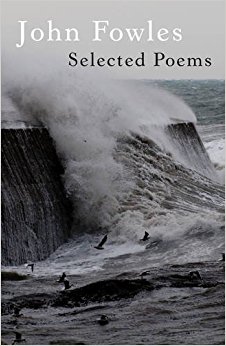
(John Fowles wrote poetry throughout his lifetime, but mor...)
John Fowles wrote poetry throughout his lifetime, but more during the 1950s and 1960s than later. This selection of his poetic work opens with three major sequences dating from the early part of his career, two of which ("Apollo" and "Mycenae") draw on his time living in Greece and his interest in Greek mythology, while the third is closely related to "The Collector". The other poems included, largely unpublished and roughly in chronological order, are very varied in content, form and technique, and culminate in a sequence written in hospital towards the end of his life. Fowles was always interested in verse translation and adaptation, and the book concludes with a small sample of this side of his literary achievement.
http://www.amazon.com/gp/product/1906601356/?tag=2022091-20
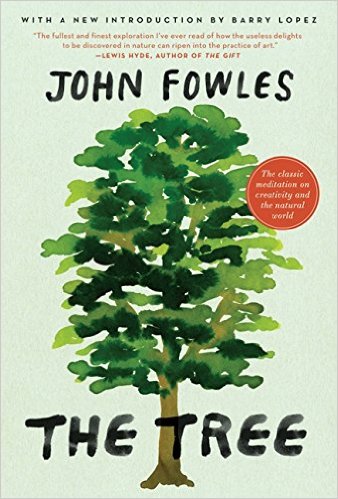
(“For years I have carried this book...with me on travels ...)
“For years I have carried this book...with me on travels to reread, ponder, envy. In prose of classic gravity, precision, and delicacy, Fowles addresses matters of final importance.” —Los Angeles Times Book Review “The Tree is the fullest and finest exploration I’ve ever read of how the useless delights to be discovered in nature can ripen into the practice of art.” —Lewis Hyde, author of The Gift “The most original argument for wilderness preservation I have encountered.” —Washington Post Finally back in print, here is the 30th anniversary edition of The Tree—the renowned English novelist John Fowles’s (The Magus, The French Lieutenant’s Woman) moving meditation on the connection between the natural world and human creativity. An inspiring modern ecological classic, The Tree is both a powerful argument against taming the wild and a major author’s inspiring and beautifully written defense of “the joys of getting lost,” and of spontaneity in life and art.
http://www.amazon.com/gp/product/0061997773/?tag=2022091-20
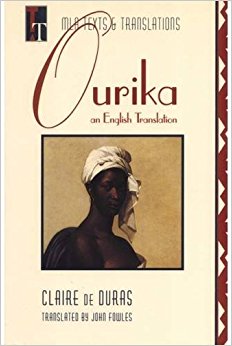
(John Fowles presents a remarkable translation of a ninete...)
John Fowles presents a remarkable translation of a nineteenth-century work that provided the seed for his acclaimed novel The French Lieutenant's Woman and that will astonish and haunt modern readers. Based on a true story, Claire de Duras's Ourika relates the experiences of a Senegalese girl who is rescued from slavery and raised by an aristocratic French family during the time of the French Revolution. Brought up in a household of learning and privilege, she is unaware of her difference until she overhears a conversation that suddenly makes her conscious of her race--and of the prejudice it arouses. From this point on, Ourika lives her life not as a French woman but as a black woman who feels "cut off from the entire human race." As the Reign of Terror threatens her and her adoptive family, Ourika struggles with her unusual position as an educated African woman in eighteenth-century Europe. A best-seller in the 1820s, Ourika captured the attention of Duras's peers, including Stendhal, and became the subject of four contemporary plays. The work represents a number of firsts: the first novel set in Europe to have a black heroine; the first French literary work narrated by a black female protagonist; and, as Fowles points out in the foreword to his translation, "the first serious attempt by a white novelist to enter a black mind."
http://www.amazon.com/gp/product/0873527801/?tag=2022091-20
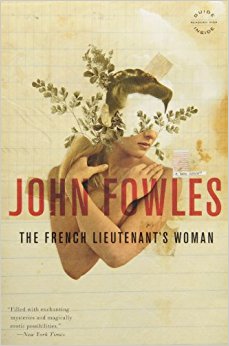
(Perhaps the most beloved of John Fowles's internationally...)
Perhaps the most beloved of John Fowles's internationally bestselling works, The French Lieutenant's Woman is a feat of seductive storytelling that effectively invents anew the Victorian novel. "Filled with enchanting mysteries and magically erotic possibilities" (New York Times), the novel inspired the hugely successful 1981 film starring Meryl Streep and Jeremy Irons and is today universally regarded as a modern classic.
http://www.amazon.com/gp/product/0316291161/?tag=2022091-20
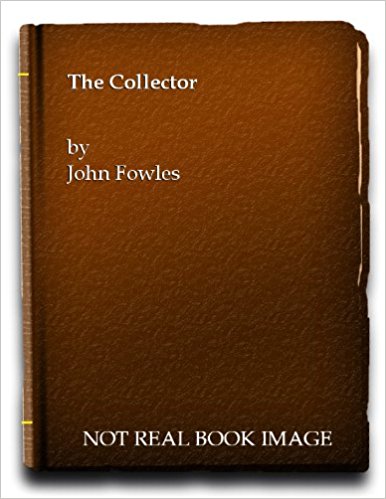
(Withdrawn, uneducated, and unloved, Frederick collects bu...)
Withdrawn, uneducated, and unloved, Frederick collects butterflies and takes photographs. He is obsessed with a beautiful stranger, the art student Miranda. When he wins the pools, he buys a remote Sussex house and calmly abducts Miranda, believing she will grow to love him in time. Alone and desperate, Miranda must struggle to overcome her own prejudices and contempt if she is understand her captor, and so gain her freedom.
http://www.amazon.com/gp/product/0316290963/?tag=2022091-20
FOWLES, John was born on March 31, 1926 in Essex. Son of Robert.1. Fowles and Gladys M. Richards.
John Fowles became Head Boy and was also an athletic standout: a member of the rugby-football third team, the Fives first team and captain of the cricket team, for which he was a bowler.
Fowles was prepared to receive a commission in the Royal Marines. He completed his training on 8 May 1945—VE Day. Fowles was assigned instead to Okehampton Camp in the countryside near Devon for two years .In 1947, after completing his military service, Fowles entered New College, Oxford, where he studied both French and German, although he stopped studying German and concentrated on French for his BA. It was also at Oxford that Fowles first considered life as a writer, particularly after reading existentialists like Jean-Paul Sartre and Albert Camus.
Fowles spent his early adult life as a teacher. He earned his living as an English teacher in France and Greece as well as at various institutions in and around London. His first year after Oxford was spent at the University of Poitiers. At the end of the year, he received two offers: one from the French department at Winchester, the other "from a ratty school in Greece," Fowles said, "Of course, I went against all the dictates of common sense and took the Greek job."Fowles was happy in Greece, especially outside of the school. He wrote poems that he later published, and became close to his fellow exiles. But during 1953 Fowles and the other masters at the school were all dismissed for trying to institute reforms, and Fowles returned to England. In late 1960, though he had already drafted The Magus, Fowles began working on The Collector. He finished his first draft in a month, but spent more than a year making revisions before showing it to his agent.The book was published in 1963.The Collector was also optioned and became a film in 1965. Afterward, he set about collating all the drafts he had written of what would become his most studied work, The Magus, based in part on his experiences in Greece. In 1965 Fowles left London, moving to a farm, Underhill, in Dorset, where the isolated farm house became the model for The Dairy in the book Fowles was then writing, The French Lieutenant's Woman (1969). Fowles became a member of the Lyme Regis community, serving as the curator of the Lyme Regis Museum from 1979–1988.Fowles was involved occasionally in politics in Lyme Regis, and occasionally wrote letters to the editor advocating preservation. Despite this involvement, he was generally considered reclusive.
(John Fowles gained international recognition in 1963 with...)
(In the spring of 1736 four men and one woman, all traveli...)
(In her haste to flee the place before the fairy godmother...)
( The novel widely considered John Fowles's masterpiece: ...)
(A new trade paperback edition of "a masterpiece of symbol...)
(1 HARDCOVER BOOK)
(John Fowles presents a remarkable translation of a ninete...)
(Perhaps the most beloved of John Fowles's internationally...)
(John Fowles wrote poetry throughout his lifetime, but mor...)
(Withdrawn, uneducated, and unloved, Frederick collects bu...)
(“For years I have carried this book...with me on travels ...)
In 1951, Fowles became an English master at the Anargyrios and Korgialenios School of Spetses on the Peloponnesian island of Spetsai, a critical part of Fowles's life, as the island would be where he met his future wife Elizabeth Christy, née Whitton, wife of fellow teacher Roy Christy, and would later serve as the setting of his novel The Magus.
